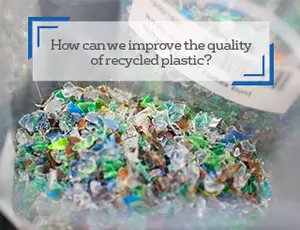
The Grand Paris Summit was held on 29 September in Paris. Organized by the Public Sénat channel and the newspaper La Tribune, it brought together almost 900 participants: mayors, public and economic decision-makers, business leaders and more. The aim: to prepare for Grand Paris 2030. Veolia Chairman and CEO Antoine Frérot spoke on the theme: "Economic recovery is crucial!"
Economic recovery is dependent on the ecological transition. By advancing the first, we advance the second
Asked about the French government's recovery plan to tackle the health crisis, Antoine Frérot said that it is necessary to invest immediately: a third of the recovery plan is devoted to ecological transformation solutions which will generate more jobs than the solutions they will replace. For example, recycling waste to make new resources creates eight to ten times more jobs than destroying the waste would.
Grand Paris could become the ecological transformation laboratory
There is no conflict between ecological transformation and jobs. We already know half the solutions that will be in use in 20 years for the ecological transformation. The other half has yet to be invented and tested: Grand Paris could become the laboratory for these solutions.
Taking air quality as an example, Antoine Frérot pointed out that Veolia has conclusively tested a solution for schools in the town of Raincy: It is now possible to guarantee indoor air quality in public spaces without consuming too much energy.
The key topic of plastics recycling is also changing rapidly: the Group is about to successfully recycle the polystyrene used in yoghurt pots, a solution that could be tested in the Île-de-France region before being deployed more widely.
The digitalization of facilities must also be incorporated into the plan: “In the Île-de-France region (via SEDIF, Syndicat des Eaux d’Île-de-France), the water network management serving 5 million people is already a model for all the world's major cities in terms of remote control, and securing and preserving the resource," explains the Chairman and CEO, who does not forget to include among his priorities the players who make these transformations possible: the recovery plan must also include a solidarity aspect to support those small businesses most severely impacted by the health crisis. A reminder of his broader vision of enterprises:
If the trade-offs between the different interests of stakeholders are fairly and harmoniously balanced across an area, companies will be better off because they will have the support of the people they serve. The more useful a business is, the more prosperous it will be, and not the other way around, concluded Antoine Frérot.
Grand Paris is a project that aims to transform the Paris metropolitan area into a major 21st century global metropolis with a view to improving the living environment of its residents, correcting territorial inequalities and building a sustainable city. The project launched in 2008. Among the capital's developments: the 2024 Olympic Games, Grand Paris Express (200 km of automatic lines and 68 stations), etc.



